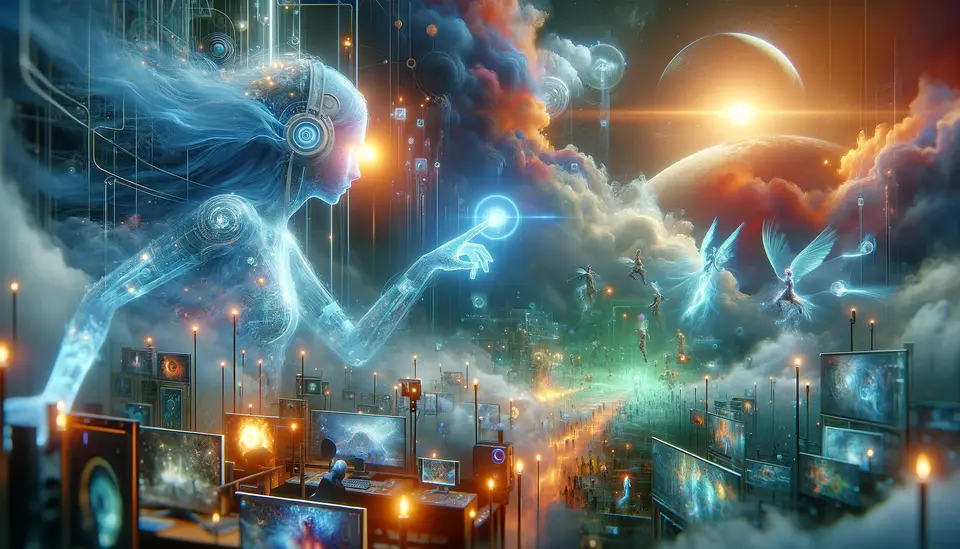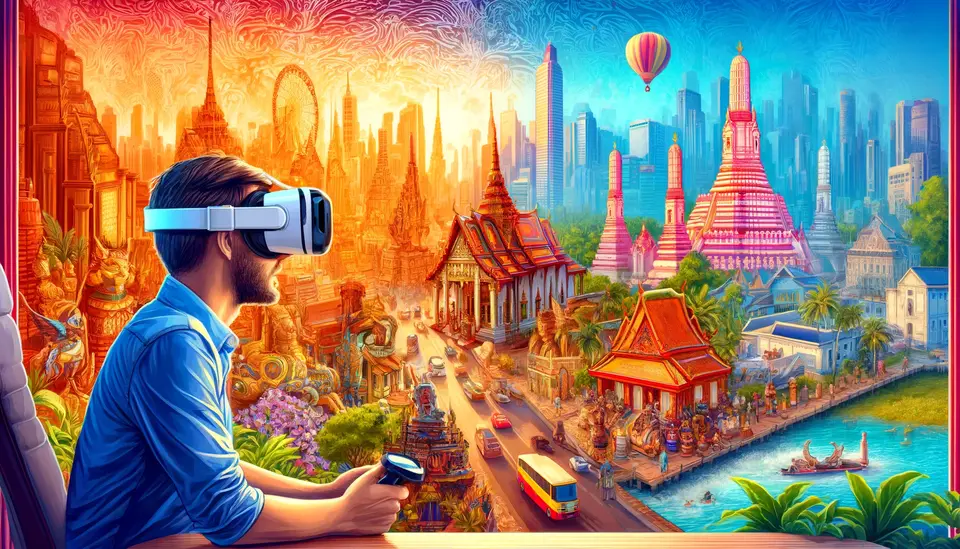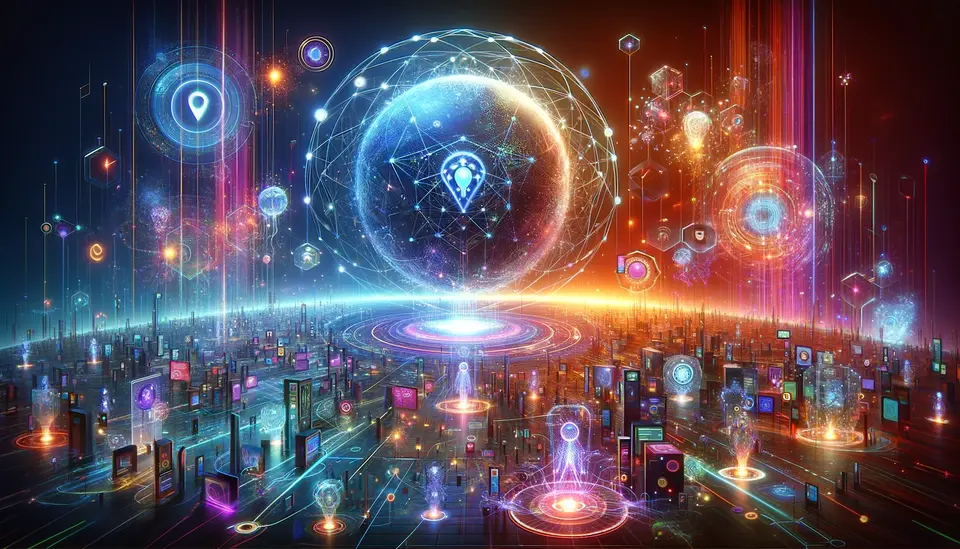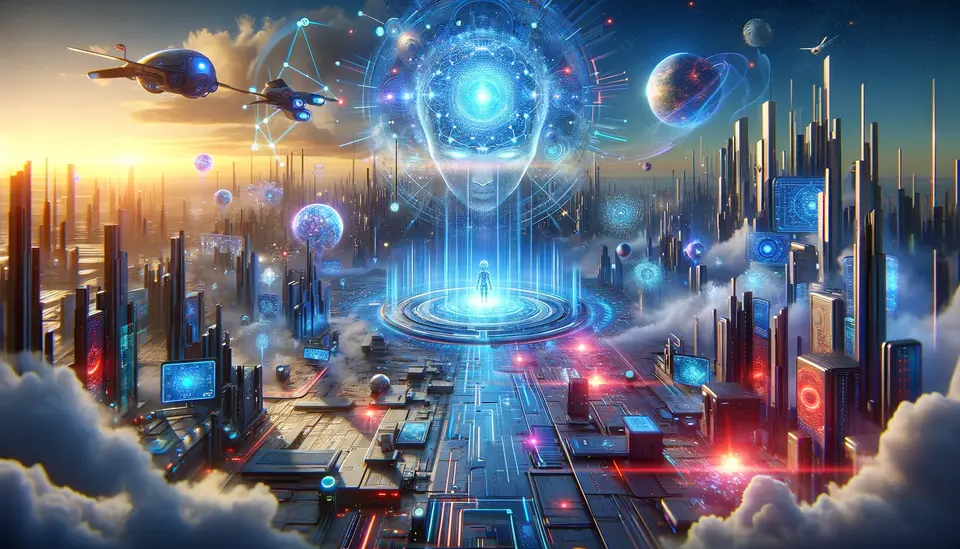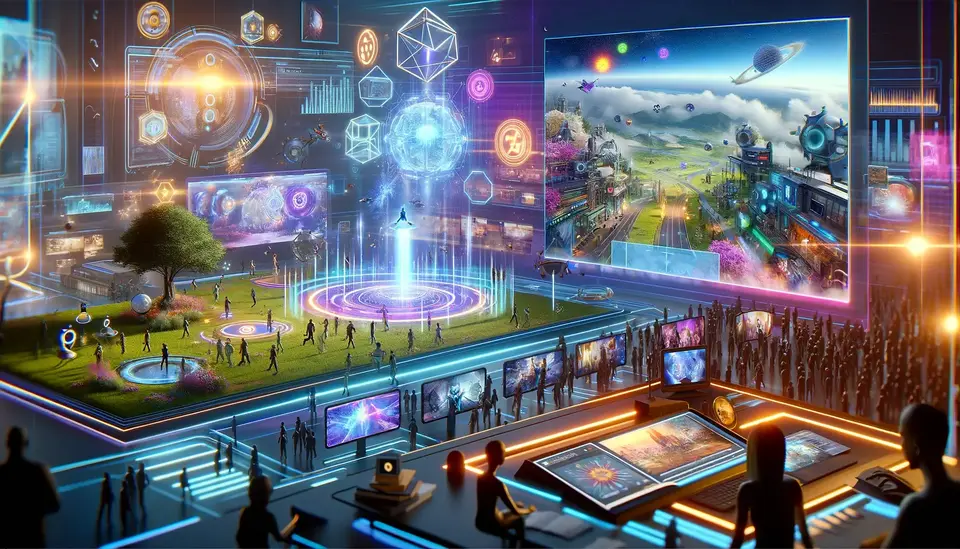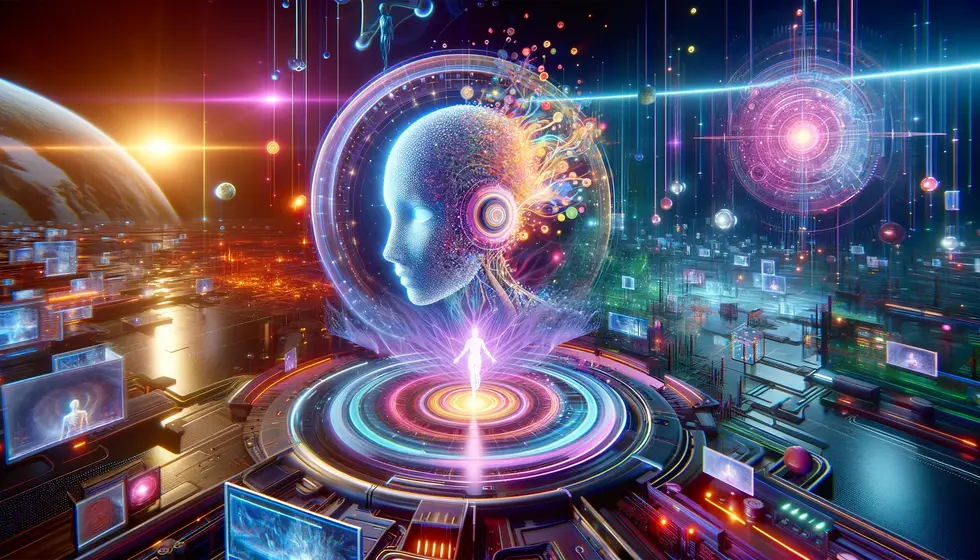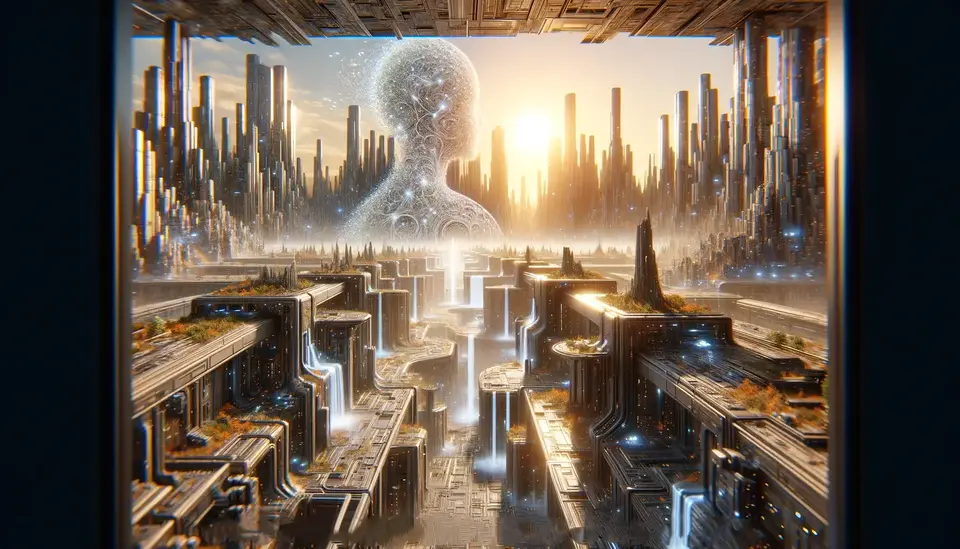Sora's Impact on Storytelling in Metaverse
Posted on April 2, 2024 9 minutes 1711 words
Table of contents
Introduction
Explanation of the Metaverse
The Metaverse represents an expansive online realm, marking the convergence of virtually enhanced physical realities, augmented reality (AR), and the vast ecosystem of the internet. This collective virtual shared space offers a seamless blend of digital and physical worlds, where users can interact with a dynamic, immersive environment that transcends the limitations of physical geography.
Introduction to Sora
Sora emerges as a groundbreaking AI model with the capability to generate realistic and imaginative scenes from simple text instructions. Though not yet released to the public, its potential to revolutionize digital storytelling, especially within the Metaverse, is immense. Sora’s text-to-video generation capabilities promise to introduce a new era of content creation, characterized by depth, dynamism, and accessibility.
The Significance of Storytelling in the Metaverse
Storytelling within the Metaverse goes beyond traditional narrative forms, offering unique opportunities for engagement, community building, and enhancing user experience. The ability to create compelling, immersive stories is crucial for the development of Metaverse platforms, as it fosters a sense of belonging, identity, and continuity, enriching the overall virtual experience for its inhabitants.
Sora and the Metaverse: A New Narrative Frontier
Overview of Current Storytelling Techniques in the Metaverse
The Metaverse currently utilizes a mix of pre-scripted narratives, user-generated content, and interactive experiences to engage users. However, these techniques often face limitations in scalability, complexity, and personalization, restricting the potential for truly immersive and dynamic storytelling.
How Sora Represents a Paradigm Shift in Content Creation
Sora promises to be a catalyst for change, representing a paradigm shift in how content can be created and experienced in virtual environments. Its advanced AI capabilities enable the generation of narratives that are not only rich and varied but also deeply integrated with the interactive and immersive nature of the Metaverse. By leveraging Sora, creators can transcend traditional storytelling boundaries, offering users unprecedented levels of narrative immersion and interactivity.
The Mechanics of Sora: Under the Hood
Technical Breakdown of Sora
At its core, Sora is powered by a sophisticated blend of AI technologies, including diffusion models and transformer architecture. Diffusion models allow Sora to generate content by gradually refining random noise into detailed images and videos, while transformer technology enables the understanding and processing of complex language prompts to guide content creation accurately.
Discussion on How These Technologies Enable the Creation of Rich, Dynamic, and Engaging Narratives
Together, these technologies equip Sora with the unique ability to create narratives that are not only visually captivating but also richly layered and dynamically responsive to user interactions. In the context of the Metaverse, this means stories can evolve in real-time, adapting to the actions and decisions of users, and thereby creating a truly personalized and immersive narrative experience. This technological foundation sets the stage for a new era of storytelling in the Metaverse, where the boundaries between creator, content, and consumer become increasingly blurred.
Sora’s Role in Metaverse Storytelling
Detailed Examples of Sora’s Potential Application in the Metaverse
Imagine a Metaverse where Sora enables the creation of a virtual city with evolving stories in every corner. Users can walk into any scene and find themselves in the middle of a narrative that responds to their presence. For instance, entering a virtual café could trigger a detective story where the user becomes the protagonist, with characters and plotlines generated by Sora that adapt based on user decisions. This level of immersive and interactive storytelling was previously unattainable due to the extensive resources required for creation.
Exploration of Sora’s Capacity to Generate Complex Scenes and Characters
Sora’s advanced AI could significantly enhance the depth and emotional resonance of stories within the Metaverse. By generating complex scenes and characters, Sora allows for narratives that reflect the multifaceted nature of human experiences. Characters could display nuanced emotions and react to user actions in realistic ways, making the virtual world more believable and engaging. For example, a character created by Sora could serve as a guide, mentor, adversary, or friend, dynamically changing roles based on the storyline’s development and user interaction.
Empowering Creators and Users
The Impact of Sora on Content Creators within the Metaverse
Sora represents a groundbreaking tool for content creators in the Metaverse, offering new avenues for artistic expression and narrative exploration. Artists, writers, and developers can use Sora to bring their visions to life with unprecedented ease and flexibility. This technology could lower the barriers to content creation, enabling individuals without extensive technical skills to craft complex, engaging narratives.
How Sora Democratizes Content Creation
By automating the generation of detailed environments and characters, Sora democratizes content creation, making it accessible to a broader range of creators. This inclusivity allows for a richer diversity of stories and perspectives within the Metaverse, reflecting the wide array of human experiences and cultures. As a result, the Metaverse could become a more vibrant and inclusive space that celebrates creativity from all corners of the world.
The Role of User-Generated Content in Sora-Powered Metaverse Storytelling
Sora could also empower users to become creators themselves, facilitating the production of user-generated content that enriches the Metaverse. This participatory approach to storytelling fosters a sense of community and ownership among users, as they contribute to the ever-evolving narrative tapestry of the virtual world. User-generated stories, powered by Sora, could lead to dynamic, collaborative narratives that are constantly shaped and reshaped by the community.
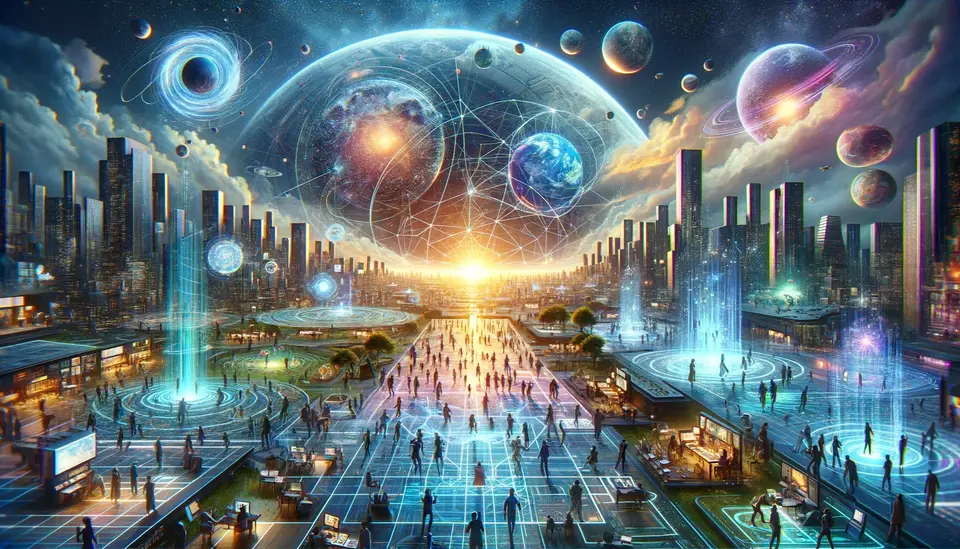
Challenges and Solutions
Technical Challenges in Integrating Sora with Metaverse Platforms
Integrating Sora with Metaverse platforms poses technical challenges such as ensuring scalability to support a large number of users, reducing latency for real-time interaction, and maintaining high fidelity in the generated content. Overcoming these challenges requires continuous optimization of Sora’s algorithms and infrastructure, as well as the development of efficient data handling and processing techniques.
Ethical Considerations in AI-Generated Content
The use of AI like Sora in content creation raises ethical considerations, including concerns about authenticity, copyright, and the potential for misuse. It’s crucial to establish clear guidelines and ethical standards for AI-generated content, ensuring respect for intellectual property rights and preventing the creation of harmful or misleading narratives.
Solutions and Best Practices for Addressing These Challenges
Addressing the technical and ethical challenges of integrating Sora into the Metaverse involves a multi-faceted approach, including the development of robust AI monitoring and control mechanisms, collaboration with legal and ethical experts, and the engagement of the community in setting standards and guidelines. Additionally, fostering an open dialogue between AI developers, content creators, and users is essential for navigating these challenges responsibly and effectively.
The Future of Storytelling in the Metaverse
Speculative Advancements in AI Storytelling and Their Implications for the Metaverse
As AI technology continues to evolve, we can anticipate groundbreaking advancements in storytelling within the Metaverse. Imagine AI systems capable of creating not just static narratives but dynamic story ecosystems that evolve based on collective user interactions, leading to a living narrative that grows and changes organically. This could result in narrative forms that are more adaptive, personalized, and immersive, fundamentally altering how stories are experienced and shared within the Metaverse.
Potential Shifts in Narrative Forms, User Engagement Strategies, and Community Dynamics
The integration of advanced AI like Sora into Metaverse storytelling is likely to usher in shifts in narrative forms, moving away from linear storytelling to more complex, branched narratives that allow for deeper user engagement. This evolution will necessitate new strategies for engaging users, potentially leveraging AI to analyze user preferences and tailor experiences in real-time. Additionally, the communal aspect of storytelling in the Metaverse could strengthen, with communities not just consuming stories but actively shaping them, blurring the lines between creators and audience.
The Role of AI in Shaping the Evolution of Metaverse Experiences and Its Cultural Impact
AI’s role in the Metaverse is set to be transformative, influencing not only the technical capabilities of virtual worlds but also their cultural significance. As AI-driven stories become more sophisticated, they could serve as a medium for exploring complex themes and issues, fostering a deeper understanding and empathy among users. The cultural impact of AI storytelling in the Metaverse could be profound, offering new ways to connect, explore, and understand the human condition across virtual spaces.
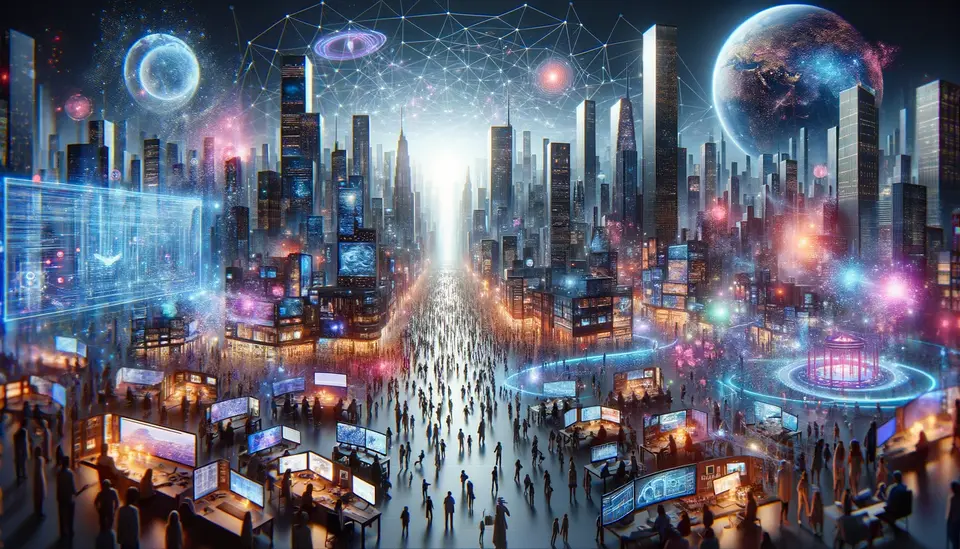
Collaboration and Community Building
The Importance of Collaborative Efforts Between AI Developers, Metaverse Platforms, and the Creative Community
Successful integration of AI storytelling in the Metaverse will rely heavily on collaboration among AI developers, platform creators, and the broader creative community. Such partnerships are essential for ensuring that AI technologies like Sora are used ethically and effectively, maximizing their potential to enhance storytelling while addressing technical and ethical challenges.
Case Studies or Hypothetical Scenarios Highlighting Successful Integrations of AI-Powered Storytelling in the Metaverse
One could imagine a scenario where a Metaverse platform collaborates with AI developers to create an interactive narrative experience centered around a virtual world’s history. As users engage with the story, their choices influence the development of the world, leading to a rich tapestry of user-generated lore. Such a project would not only showcase the potential of AI-powered storytelling but also highlight the importance of community participation in shaping narrative content.
Conclusion
Recap of Sora’s Transformative Potential for Storytelling in the Metaverse
Sora stands at the forefront of a new era in Metaverse storytelling, offering the tools to create immersive, dynamic, and deeply engaging narratives. Its capabilities promise to revolutionize how stories are told, experienced, and shared within virtual worlds, marking a significant leap forward in digital narrative experiences.
Final Thoughts on the Future of Narrative Experiences in Digital Universes
The future of storytelling in the Metaverse, powered by AI innovations like Sora, is poised to offer experiences that are more immersive, interactive, and emotionally resonant than ever before. This evolution emphasizes the balance between technology and creativity, where AI serves as a catalyst for human expression, not a replacement.
Call to Action for Creators, Developers, and Theorists
To fully realize the potential of storytelling in the Metaverse, a concerted effort from creators, developers, and theorists is essential. Together, these groups can explore the possibilities of AI-powered narratives, address challenges, and shape a future where stories transcend traditional boundaries, fostering a richer, more inclusive Metaverse. The journey ahead is filled with opportunity, and the time to start exploring and shaping this future is now.

